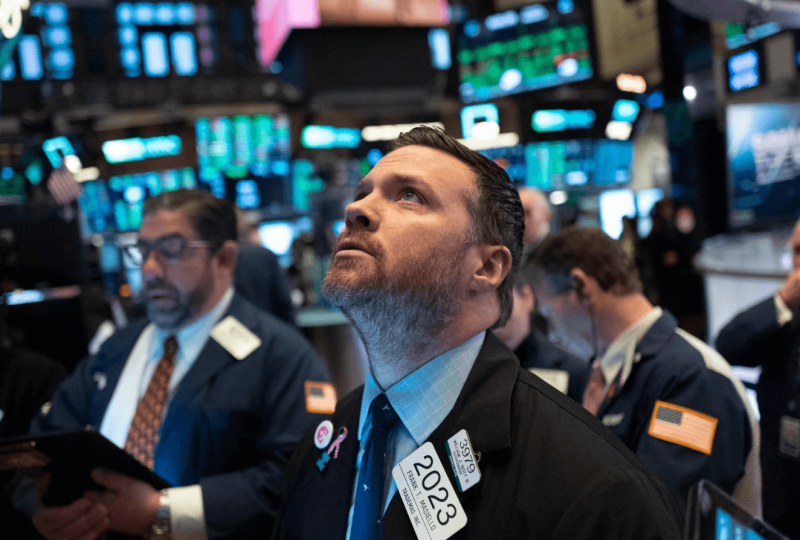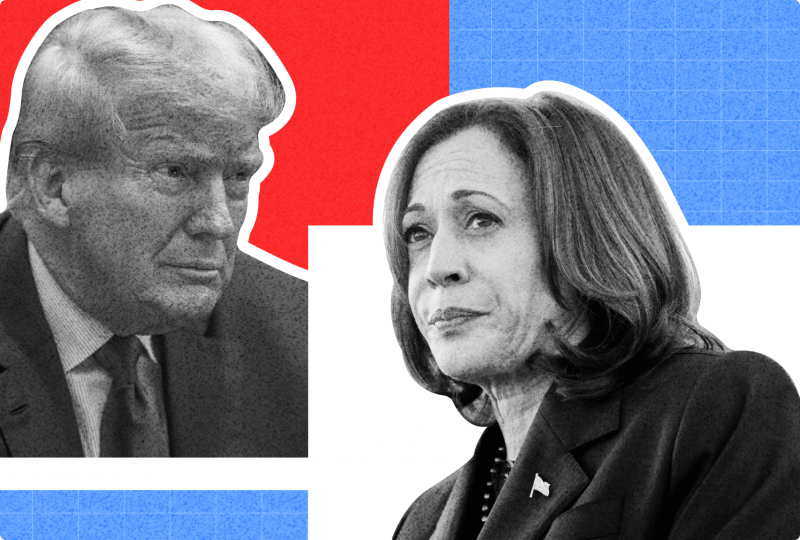Stock Market News Live Updates: Stocks Dip As Investors Digest Hawkish Fed Remarks, Eye More Sanctions
Apr 06, 2022

The stock market in the United States dipped on Wednesday as investors awaited further hawkish comments from top monetary authorities. These indicated that more Federal Reserve officials were willing to move aggressively to hike interest rates to reduce demand and persistently excessive inflation levels.
The S&P 500 fell further, adding to its losses after the blue-chip index closed Tuesday's session down 1.3%. The Dow Jones Industrial Average and the Nasdaq both extended their losses. In the bond market, the benchmark 10-year Treasury yield surpassed 2.6%, its highest point since May 2019.
The Russia-Ukraine conflict and the West's reaction were spotlighted on Wednesday, as the United States imposed further sanctions against the Kremlin. The United States imposes additional restrictions on more Russian government leaders and their close relatives, as well as Russian-owned businesses and banking institutions.
At the same time, hawkish comments from Fed members have pulled US markets off their recent rally and sent Treasury rates soaring. The Fed's meeting minutes, published Wednesday afternoon, revealed that monetary authorities discussed beginning quantitative tightening in the near term and that "several participants... would have preferred a 50 basis point rise" in benchmark interest rates at the March session.
Other, more recent comments from monetary officials were reiterated in the meeting minutes. On Tuesday, Fed Governor Lael Brainard stated that the FOMC is "prepared to take greater action" if already rising readings of inflation rates and forecasts demand such a response.
Brainard said in a teleconference that this might involve aggressive interest rate rises and a considerably faster shrinking of the Fed's balance sheet — which has grown to about $9 trillion — than in past years.
"Considering that the recovery has been substantially faster and stronger than in the prior period, I anticipate the balance sheet to shrink more quickly than in the preceding recovery, with considerably bigger caps and a much shorter time frame to phase in the highest caps, especially in contrast with 2017–19," Brainard commented. She stated that lowering the Fed's balance sheet assets, or the quantitative tightening, may start as early as the Federal Reserve's next session in May.
Other central bankers expressed support for further policy tightening in the near future. The potential for a 50 basis-point interest rate hike — or a hike twice the size of the Fed's average per-meeting increase — "has grown," as San Francisco Fed President Mary Daly said.
"The reality is, the Federal Reserve has made it crystal clear... they must stop inflation with whatever means necessary," said Quincy Krosby, chief equities strategist at LPL Financial. "They're ready to do it, and I believe the market is sensing that it will be a bumpy ride."
"The Federal Reserve could go till it cracks something... but it's obvious that this is their purpose, and they're going to go full speed ahead with it - more than in 2017, more than in 2018," she continued, alluding to the last time the Fed tightened monetary policy several years ago.
Since inflation rates in the United States are still hovering at 40-year highs, the Fed has been forced to tighten financial conditions aggressively, so some on Wall Street have lowered their growth forecasts for the United States and the global economy. According to Deutsche Bank experts, the United States will enter a recession by the end of next year as the Federal Reserve swiftly raises interest rates to handle excessive prices.
"We now anticipate the United States to be in an actual recession by late 2023, and Europe to be in a growth recession in 2024, with unemployment creeping higher," Deutsche Bank analysts David Folkerts-Landau and Peter Hooper wrote. "Our baseline assessment is that these events will have a dampening effect on GDP in the rest of the globe while also helping to bring inflation down to mandated levels, reducing the chance of more shocks down the road."
Nonetheless, the analysts cautioned that their prognosis for a recession in 2024 "is still considerably out of line" — and indeed, many on Wall Street still anticipate a slowdown, but not definitely a phase of negative economic growth in the short future.
"We don't think the Federal Reserve will push the economy into recession," Veronica Willis, investment strategy analyst at Wells Fargo Investment Institute, said. "Most people, I believe, are not anticipating that. However, we forecast a decrease in economic growth from what we predicted earlier, but still near average economic growth in the United States."




